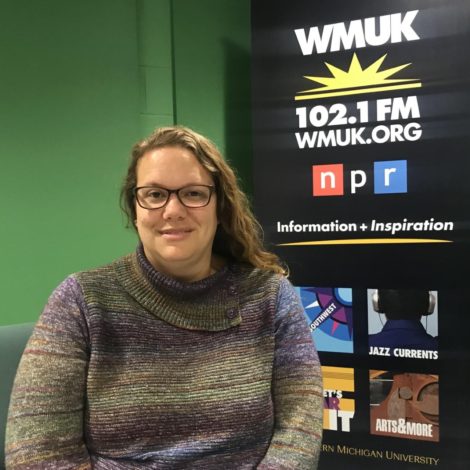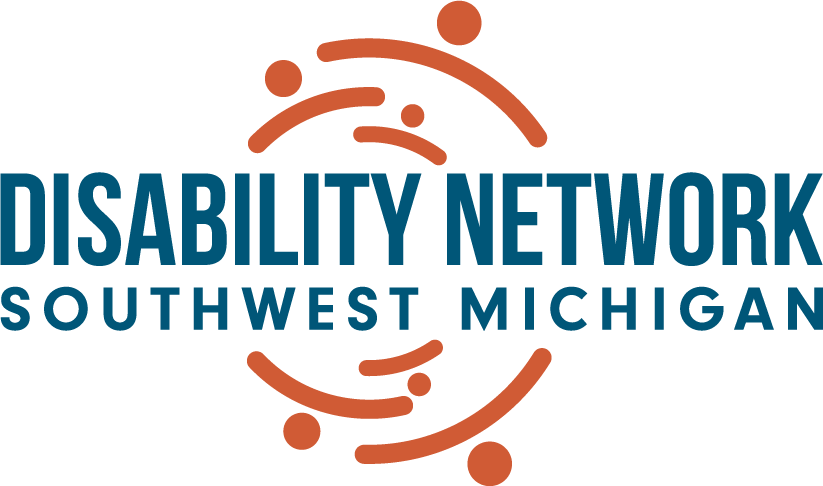
Last week, WMUK’s Earlene McMichaels interviewed Disability Network’s Community Education Coordinator, Miranda Grunwell about our current Lunch & Learn movie series. Below is a transcript of the interview, or you can visit WMUK‘s website to listen to the interview.
Transcript: WMUK interview with Miranda Grunwell | March 14, 2019
Earlene McMichael of WMUK
Miranda Grunwell of Disability Network Southwest Michigan
EM: This is WMUK’s West Southwest. Who doesn’t like movies? That’s what Disability Network Southwest Michigan is banking on. For three months its showing critically acclaimed films for free over lunch in Kalamazoo, Battle Creek and St. Joseph. The movie for March is “Keep the Change,” a romantic comedy about a couple with autism.
MG: So this is our second year for doing a lunch, learn and discussion series. March is month two with “Keep the Change” and we just wanted a way for people in the community to come and learn about different disabilities in kind of a neutral setting where they don’t’ have to be afraid. So it’s kind of a nice setting, we’ll have lunch and some movies.
EM: That’s Miranda Grunwell, the community education coordinator at Disability Network. She says the hope is that the movie patrons will leave wanting to make their spaces more inclusive. Who’s been coming out to the film series?
MG: So we’ve had a lot of parents come, some people with disabilities and even some local schools as well as some of their staff.
EM: The last movie was in February, is that correct?
MG: It was, yup. We showed “Intelligent Lives” which was about three individuals with a Developmental Disability.
EM: And you selected for your feature in March the “Keep the Change” movie. That’s really a ground-breaking film, I see a number of really respected publications have written about this all the way from the New York Times, Variety, The Hollywood Reporter. The film I think was originally released last year, and in 2017 it won a couple of awards at the Tribeca Film Festival. Tell us why this film is significant.
MG: So, yeah, I picked this film because it’s about two people who fall in love who have autism and they picked characters who actually have autism. So in this movie it’s David and Sarah, who have autism, and they are playing people who have autism. And that’s really important now in the disability community that people with disabilities are being picked for the films and not people without disabilities being played.
EM: It changes the narrative a little bit about people with disabilities.
MG: It does. Usually people with disabilities in films are usually the bad guy, or sad, or tragic, where this film is really just about two individuals living their lives and falling in love; which a lot of young people dream of is falling in love, so it’s that romantic comedy. They meet each other in a support group for people with autism, so there are a lot of other people with disabilities in this film as well. I like how it portrays people with disabilities as natural; these are just two individuals doing things in life that we all do.
EM: Plus the action is focused on their actions together, not their interactions with others. So it stays kind of within their world and highlighting their issues. In the New York Times they say it respects these people by portraying their whole, unfiltered selves.
MG: Yes, definitely. That’s one of the things I enjoyed about this film as well. It shows their struggles as they are starting to know each other, meeting each other’s families; I remember doing that as a young person meeting my husband’s family – my future family; and you can see them in the film and how nervous they are. And their autism plays into that, as we all do – we all have a personality and it comes out in the film. I think when their meeting the parents is one of my favorite scenes.
EM: The movie is about an hour and thirty-four minutes; do you plan to show the film in total, or just pieces of it?
MG: No, we’ll play the whole film. We’ll have lunch ready; I order lunch for everybody. So you just let me know that you’re coming so I can make sure you have lunch. Then we’ll watch the film while we’re eating and once the film is done, we’ll have a discussion about what people liked about the film or what they didn’t, ideas of how we can maybe incorporate more of this into our daily lives, if someone has a take-away from it. And I do want to talk a little bit in our discussion about Hollywood and the casting of people with disabilities and the lack of it.
EM: How long does the discussion usually last?
MG: I try to keep the whole event to 2 hours, because I know people have very busy schedules. So I’ll try to end the event right at 1:30, but if people want to keep talking, I’ll stick around for as long as they want.
EM: Can you describe the work of Disability Network.
MG: So, we are Disability Network; we’re located in downtown Kalamazoo. We are the first stop for people and their families with disabilities in Southwest Michigan. So if you have a disability and you have a question, you come to us.
EM: Since the theme of this film deals with autism, what, in particular to you offer for people with autism at Disability Network?
MG: So, people with autism, or any disability – we are a cross-disability agency – we have information & referral, so if a person has autism, or maybe a family member, they can call and ask questions. So, maybe they are trying to figure out resources, maybe you have questions about what life will look like after high school – it could be employment or post-secondary. So people start by calling us and asking us about situations in life; maybe its housing – someone may be thinking about moving out on their own, so they can call us and we can help on some housing topics.
EM: In the press release you sent to the station, you all said how the film shows positive examples of how non-disabled people can create inclusive environments. Is there some suggestions you can leave with us in terms of how to do that?
MG: Yeah, so making sure that your places are accessible; making sure they have ramps and no step entrances; if you’re going to have handouts available, make sure you offer them in alternative format, which might just be emailing it to someone so if they use a screen-reader or need to make the print bigger, they can. And on any applications you have for events, just put a simple statement on the bottom that if you have an accommodation request, to let us know. So people can call and say, you know, “Is there going to be an interpreter?” “Is the bathroom going to be wide enough for me?” – It opens that dialoged so people know this will be a safe environment for them to attend.
EM: Well thank you for joining us today.
MG: Thank you so much for having me.
EM: Disability Network will be showing “Keep the Change” – a romantic comedy about a couple with autism – three times at its various locations. Screenings are in Kalamazoo March 18, in Battle Creek March 26, and in St. Joseph on March 27 – all show times are at 11:30 AM. April’s film deals with mental illness. For more information about the film series visit WMUK.org.
[END INTERVIEW]
